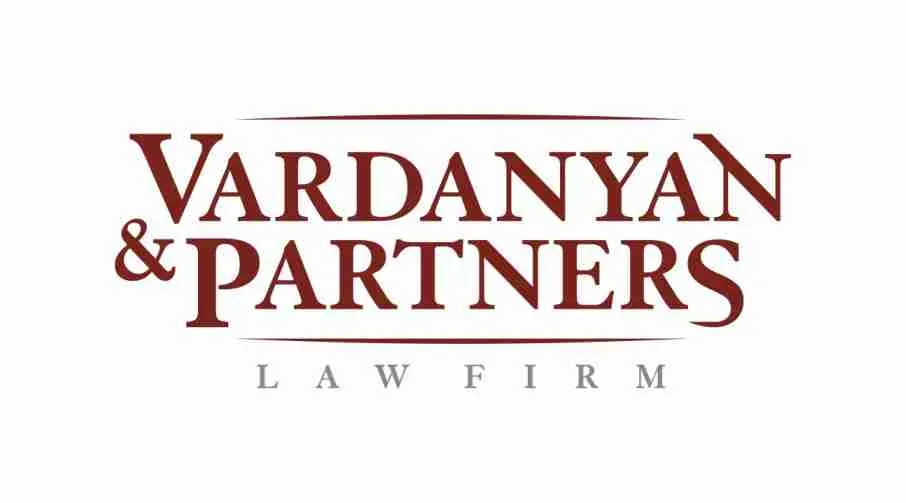Their meticulous attention to detail, unwavering dedication, and commitment to ensuring their clients' needs are met are truly admirable. I strongly recommend Vardanyan & Partners for their exceptional legal services.
[email protected] | +374.99.00.11.67 | WhatsApp | Skype | Viber | Telegram
Armenia 2024 Tax Guide: Key Updates for Businesses and Individuals
Introduction to Tax Requirement Updates in Armenia
As we step into the new year, the importance of staying up to date with the latest tax developments in Armenia cannot be overstated. These updates are not only significant for businesses but also hold implications for individuals, shaping financial strategies and decision-making throughout the year.
Continued Support for IT Businesses
The Armenian government remains committed to its dedication of fostering the IT sector. In a strategic move to support this developing industry, the Armenian government has extended the tax benefits for IT businesses until the end of 2024. The favorable 10% payroll tax rate for IT businesses will continue throughout 2024. Nevertheless, it is important to state that the accompanying 0% corporate income tax rate will not be applicable from January 1, 2024. This measure is designed to stimulate growth and innovation within the IT sector, acknowledging its crucial role in shaping the country's economic landscape.
2024 Tax Rates Overview
To provide a comprehensive understanding of the tax field, below you can find the key tax rates applicable in 2024.
Corporate Tax Regimes
Micro-businesses (sales up to approx. $60,000/year): 0%
It's noteworthy that businesses operating as traders in Yerevan, the capital city, and the majority of service-oriented sectors such as marketing, consulting, engineering, etc., do not qualify for the microbusiness status.
Trade and services (sales up to approx. $290,000/year): 5% on the revenue
In general, smaller businesses pay turnover tax, set at 5% of their sales. This tax is calculated based on the company's gross sales or revenue and is to replace both Corporate Income Tax (CIT) and Value-Added Tax (VAT).
Shown below are businesses that are subject to the turnover tax regime with tax rates other than 5%:
- Restaurants (no sales cap): 6%
- Manufacturing: 3.5%
Larger businesses (sales exceeding $290,000/year): 18%
Companies with yearly sales surpassing approximately $290,000 are additionally subject to the corporate income tax regime. It is worth noting that in case the accountants do not submit the application within 20 days after the registration for the company to be taxed with the microbusiness or turnover tax regimes, the company will automatically be taxed by the general tax regime.
Value-Added Tax (VAT)
In Armenia, the standard rate of VAT is 20% for imports and sales by larger businesses (sales exceeding $290,000), and 0% for export of goods and services (enabling exporters to claim refunds of input VAT).
Payroll Taxes
Payroll taxes usually constitute a percentage of the employee's income and are withheld by the employer on behalf of the government.
The key components of payroll taxes in Armenia include:
- Income tax: 20%
- Pension contributions: 5% to 10%, capped at approx. $200/month
- Military payments: $4 to $40/month
Exemptions
It is important to highlight the exemptions that may apply to some persons. To elaborate, individuals typically do not face taxation on capital gains arising from the sales of securities, real estate, or other property, as well as on pension income. Additionally, there are no taxes imposed on gifts or inheritances.
Property Tax and Rental Income Reporting
As of December 1, 2023, the government has intensified its enforcement of rental income reporting. Failure to declare rental income may result in a fine of around $1,250. The tax rate on rental income stands at 10%. A property tax calculator is available at e-cadastre.
Conclusion
In conclusion, navigating the 2024 tax rates in Armenia requires a nuanced understanding of the changes outlined above. Whether you are a business owner or an individual taxpayer, understanding these details is crucial to ensure optimal compliance and strategic financial planning.
What Makes Armenia a Good Choice for Residency
No Stay or Visit
Maintaining residency in Armenia does not require physical presence; remote application is possible.
Fast and Easy
The residency application usually takes about 80 days and only a valid passport is required.
Family Covered
Residents can sponsor extended family for residency (parents, siblings, grandchildren, etc.)
Citizenship Path
After living in Armenia for three years, citizenship can be obtained. Dual citizenship is allowed.
Contact Us
We will be happy to answer your questions. Please fill out this form and we will be in touch soon.
We are committed to keeping your e-mail address confidential. We do not sell, rent, or lease our contact data or lists to third parties, and we will not provide your personal information to any third party individual, government agency, or company at any time.
Our Achievements
Cases Handled
Nationalities Assisted
Years of Expertise
Success Rate
Rating on Google
Lawyers on Staff
Our Proven Process of Making Armenia Your Second Home
1
Preparation
As part of the preparation process, we will take care of translating your passport, printing photos, and filling out the necessary forms.
4
Residency for Family
You can sponsor your spouse, children, parents, siblings, grandparents, and grandchildren to obtain residency in Armenia.
2
Investment
In order to qualify for residency, you have the option of either making a low-risk investment in government bonds or donating to a rural development project.
5
SSN, Tax ID, Etc.
You can obtain a certificate of registered address, a social security number, personal tax identification number, as well as a tax residency certificate.
3
Residence Permit
Applicants can choose to apply for a temporary (1-year) or permanent (5-year) residence permit remotely or in-person.
6
Bank Account
You can choose from 18 banks offering online and mobile banking, Visa and MasterCard options, and up to 11% interest on deposits in AMD, RUR, etc.
What Clients Say
As an American living in Armenia, I definitely need legal representation to help guide me through the many rules and regulations here, and I am happy that Vardanyan & Partners has been able to do just that.
Overall, I felt it could not have been any better. Everything was taken care of so smoothly, effortlessly, and managed very well.
It is always daunting when dealing with immigration, visas in a foreign country. The team at Vardanyan & Partners made the process for registering the business and applying for residency so much easier. I had no worries at all. The team overall really went out of their way to accommodate and assist us.
The company is the great team of professional specialists. They have formally defined mature processes, that helps to serve client's requests clearly, on time, without red tape and bureaucracy.
The team members were all professional, knowledgeable and most importantly, honest. They are hard-working and patient and were always responsive to my messages and questions. What I like most is, they are very well organized and have a modern system of work.
The team of Vardanyan & Partners led us through the whole process seamlessly by navigating the bureaucracy end to end. Extremely professional yet personal and friendly service.
Armenia is a captivating nation with a rich history and a promising future. Our firm is wholeheartedly committed to supporting individuals and businesses that recognize Armenia's potential and are eager to contribute to its ongoing success.
We trust that this website will serve as a valuable resource for you in gathering the information you need. Should you have any questions or require further assistance, please feel free to get in touch with us. You can easily contact us through various channels, such as completing the form on our website, emailing us directly at [email protected], or reaching out via phone or popular messaging apps like WhatsApp, Viber, Telegram, and Skype at +374.99.00.11.67. We are always available to assist you in any way possible.
Nerses Isajanyan
Managing Attorney
LL.M. Georgetown University, licensed to practice in both Armenia (license no. 903) and New York (license no. 5148945)
About Us
Vardanyan & Partners is a reputable law firm situated in Yerevan, Armenia, which has been providing excellent legal services since its establishment in 2012. Our team of locally licensed, English-speaking attorneys specializes in immigration, incorporation, and compliance matters, ensuring that clients receive expert legal guidance. We are committed to staying up-to-date with the latest changes in legislation and regulations, ensuring that our clients receive the most relevant and accurate advice. At Vardanyan & Partners, we place a strong emphasis on honesty, transparency, and client care.

